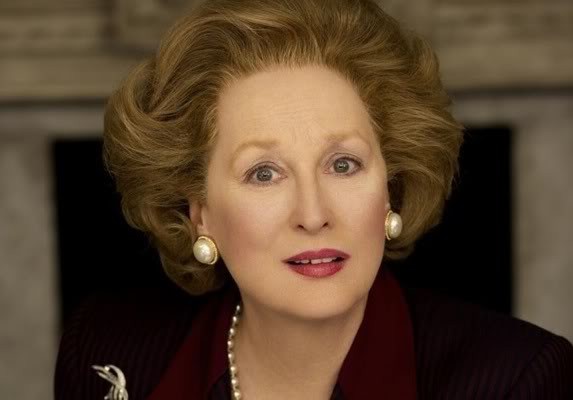Culture
“Iron Lady” not exactly solid

The Iron Lady
dir. Phyllida Lloyd
Release Date: Jan 13, 11
- 1
- 2
- 3
- 4
- 5
- 6
- 7
- 8
- 9
- 10
Reader, as part of my New Years’ Resolutions, I decided to work on my anger issues and swear less, and so I probably should not be reviewing The Iron Lady right now, my least favorite non-Adam Sandler film in recent memory, a movie so awful that I actually envied Margaret Thatcher for never having to see it. For once, having Alzheimer’s sounded preferable.
Look, I don’t care that Meryl Streep is in it, even though she’s basically God. She may give one of the finest performances of her career, but unfortunately, she does so in a movie that I am only allowed to describe as “total bloody bollocks,” a parade of schmaltz and dishonesty that would make Stephen Daldry blush. Streep is a consummate professional, a performer who gives all of herself to create a fully-realized portrait of a human being, and her spot-on Margaret Thatcher actually serves to make the movie around her look so much worse.
As in many of her previous films, Streep certainly brings a level of depth to her character that her directors don’t know how to handle. In It’s Complicated, Nancy Meyers made her sexually awakened divorcee into a ditzy wino, and her Iron Lady director Phyllida Lloyd frumped her down in overalls and bad lighting in Mamma Mia!, which at least had the mercy to be enjoyably terrible. It also helped that, in each case, Streep had an ensemble to anchor her, talented actors to help her make the best of a bad situation.
But here, there’s nothing to distract from the mess that Meryl has gotten herself into. Olivia Colman, a normally wonderful actress, plays her sad sack daughter and spends most of berated by Thatcher, and Jim Broadbent gets to wear funny hats and blow kazoos as her husband, Denis. The movie wants to sell Denis as a light-hearted jokester, but in the few scenes Broadbent is in, he comes off as a buffoon.
So, once again, bereft of absolutely anything else watchable, that leaves us with Thatcher. You might think: “Great, Margaret Thatcher is one of the most fascinating, if polarizing, figures of the 20th century. Let’s have at it.”
Well, tell that to the director. For whatever reason, Phyllida Lloyd seems oddly uninterested in who her subject might have been as a politician or a leader, relying instead on personal trivia and biopic shorthand to create her picture of Thatcher. Writer Abi Morgan’s other film this year, Shame, suffered from the same problem (an inability to engage with the subject at hand), and after two hours with Thatcher or Shame’s Brandon, you don’t feel like you know them at all. I take that back, actually: I now know that Thatcher was a grocer’s daughter, an insufferable soapboxer and kind of a terrible parent. I am shocked.
To build their portrait of a Hollow Tin Woman, Lloyd and Morgan rely on irritating psychological shorthand – the origin story tropes that make her into a really boring X-Men character – and montages, which serve to sweep any of her real political convictions under the rug. We hear Streep make some fancy speeches, which rely heavily on the pull-yourself-up-by-your-bootstraps rhetoric you could see in a YouTube video, but we get no real sense of her policies. Whereas Aaron Sorkin and David Fincher relished in the behind the scenes dramas that created the Facebook empire, Lloyd has absolutely no interest in that.
Although Lloyd seems to think she’s being impartial, like a journalist, there’s no sense of detail to back that up, and it makes her movie look unintentionally like a Thatcher apologia. Thus, we have a Margaret Thatcher movie without a single thread of Thatcherism, no real characters, no sense of Parliamentary or British politics and no glimpse of Thatcher’s time in office.
Whoa. Harsh.